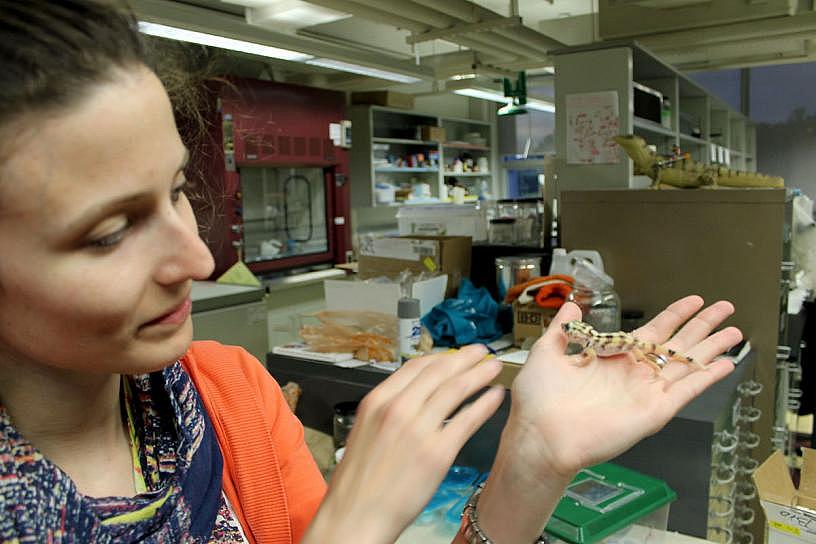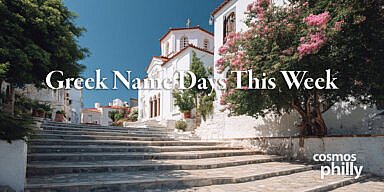Greeks are a very small percentage of the world’s population, only 0.2% but the percentage of Greek national top scientists worldwide is a staggering 3%.
Philadelphia, with all of its hospitals and academic institutions, has a great number of highly educated and trained Greeks that live and work under the radar of our community. Often they go unnoticed by the rest of us, mostly because they are absorbed in their demanding work schedule and complex research endeavors.
By Theodore Arapis, Ph.D.
This article is in memory of Dr. Margarita Metallinou, a Post Doctoral Research Fellow at Villanova University who died tragically at 29 years of age, while doing research in Zambia, Africa, this past July. Although Margarita was part of Villanova University’s Department of Biology for less than a year not only did she make an impact in her field, but she also touched all of those who were fortunate enough to work with her. Simply put, this article is written because I did not want her limited time in our area to go unnoticed by our community.
Margarita was born in Athens about 29 years ago. Her family originated from Strefi, a small village outside the city of Kalamata, and Ano Korakiana, a village in Corfu island. Margarita and her sister Angeliki would typically spend Easter in Corfu, perhaps the best time to visit this island rich in Easter traditions. “Almost every day of the Holy week there would be parades and music by the local philharmonic. We were very fortunate that our family house was right next to the Saint Spyridon’s church” Angeliki told me. “While people would gather in the streets to hear the Philharmonic, we only had to stand at our balcony.” Even when they could not visit Corfu, because of studying abroad, their parents – Ioanna and Tasos – would call them on Holy Saturday morning, put the phone outside the window of their Corfu house, and let them listen to the music.
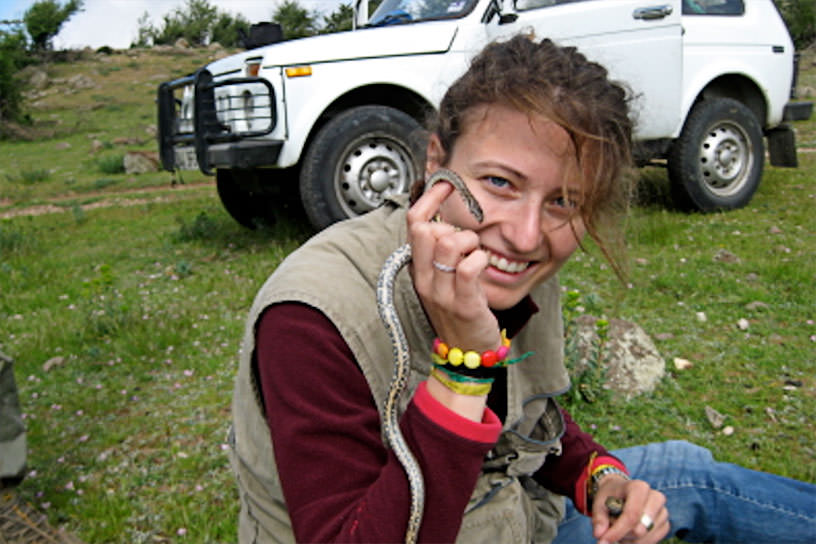
Margarita’s academic journey began about 12 years ago, in 2003 when she registered at the National and Kapodistrian University of Athens to study Biology. In 2008, she moved to Barcelona, Spain, to continue her education with a Masters of Science. After her first expedition in Morocco in July 2009, Margarita’s love for working with reptiles, especially geckos, grew so much that led her into pursuing a Ph.D. In November 2009, after receiving support from the Spanish Government she began her Ph.D. in Genetics, Evolution, and Biodiversity.
In Spring 2014, while Margarita was still working on her dissertation, Villanova University’s Department of Biology opened a post-doctoral position. Margarita had found what she had been dreaming of, a unique opportunity to continue doing what she loved most with Professor Aaron Bauer, a gecko expert. “I still remember and I will always remember when she entered into my office with a printed copy of the advert in her hand and showed it to me,” Professor Salvador Carranza (Margarita’s mentor at the University of Barcelona) said in the interview.
Margarita’s post-doctoral position at Villanova University was part of a National Science Foundation (NSF) grant advancing research relevant to lizard climate-forced extinction. In particular, Professor Bauer had conceptualized a project for investigating how temperature change affects lizards’ ability to get the energy required for their survival and reproduction process. Professor Bauer needed a person who had the experience, skills and drive to take the lead in this project. The person hired would oversee day-to-day activities, lead the fieldwork, and establish channels of communication with a number of experts from around the world.
“Right after interviewing her through Skype, I knew she was just the person for the job,” Professor Bauer said. Margarita, although still a Ph.D. student, had a rich fieldwork and lab experience with expeditions in Morocco, Oman, and the United Arab Emirates. The opening sentence of Professor Carranza’s letter of support was indicative of Margarita’s skills and talents: “Let me start by saying that Margarita is absolutely incredible. She has been the heart, soul, and brains of my laboratory. She is among the top 99% of all the students that I have ever worked with or interacted with during my career.”
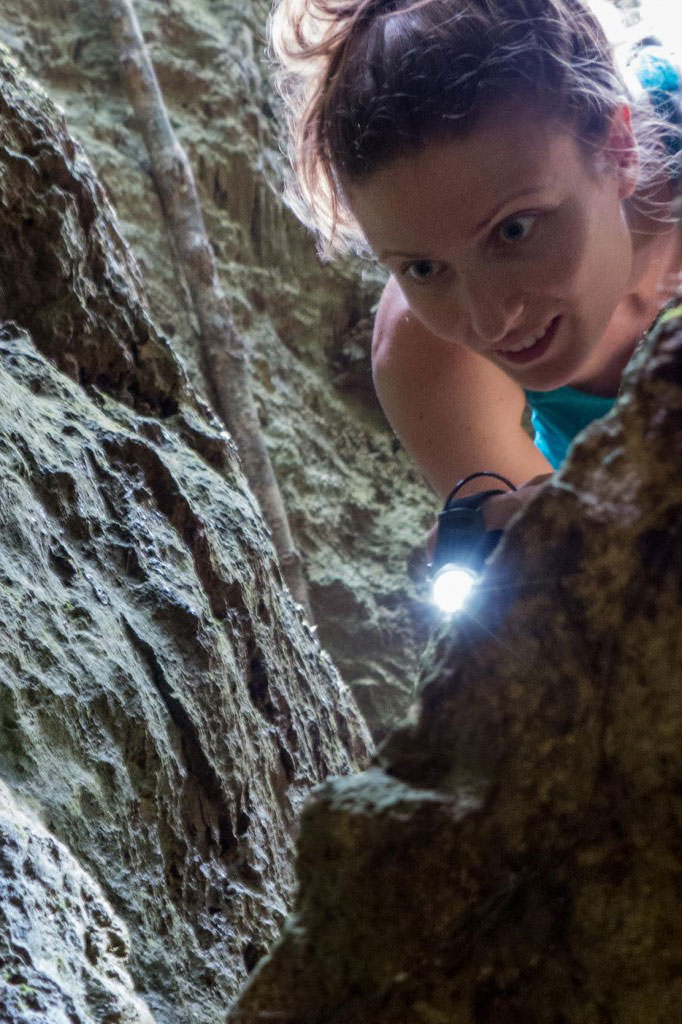
At Villanova, Margarita soon became a favorite person to spend time with, not only for discussing science and research, but also life, and of course to talk about Greece… the Greek sun, sea, food, and culture. “All of the students in the lab loved her. It was not just a question of respecting her work and appreciating her guidance, they were much closer than this. She really invested herself in the students and took pride in their accomplishments,” Professor Bauer told me at the interview.
This special relationship with the students started as soon as Margarita arrived at Villanova. Just a few days after she landed in Philly she got into a van and traveled along with the biology professors and students to Chattanooga, Tennessee, for an annual conference meeting. “Margarita helped us with our work in the van and even once we reached our hotel at night. She stayed up late with us helping to run the data and analyze results, and listening to us practice our presentations. I was so impressed by her patience and willingness to help three stressed-out students that she had only just met, and by her support and guidance throughout the entire conference. Hanging out and talking with Margarita was easy – she was a warm, fun, interesting person, and I really enjoyed her company.” These words belong to Elyse Freitas, one of the many students Margarita had helped with their research.
Within a few months, Margarita was involved with more things than just managing the NSF grant and assisting students. She stepped up when Professor Jackman needed help running his lab. She actually taught not only at the lab but also changed its operation with the help of two biology students: Ben Karin and Jackie Childers. In Ben Karin’s words “Before Margarita took over the lab, students used expensive magnetic beads that were purchased from a manufacturer in order to extract an animal’s DNA. Margarita and I found a way to make this expensive reagent ourselves, and it greatly increased the lab’s operation, cut down costs, and increased our productivity. Our home-made reagent cost 30 times less than the manufacturer’s product, and this change along with others allowed our lab to do so much more. Margarita was the brains behind these changes, and it was important to her to check and make sure any new protocol was just as effective as the prior one before switching.”
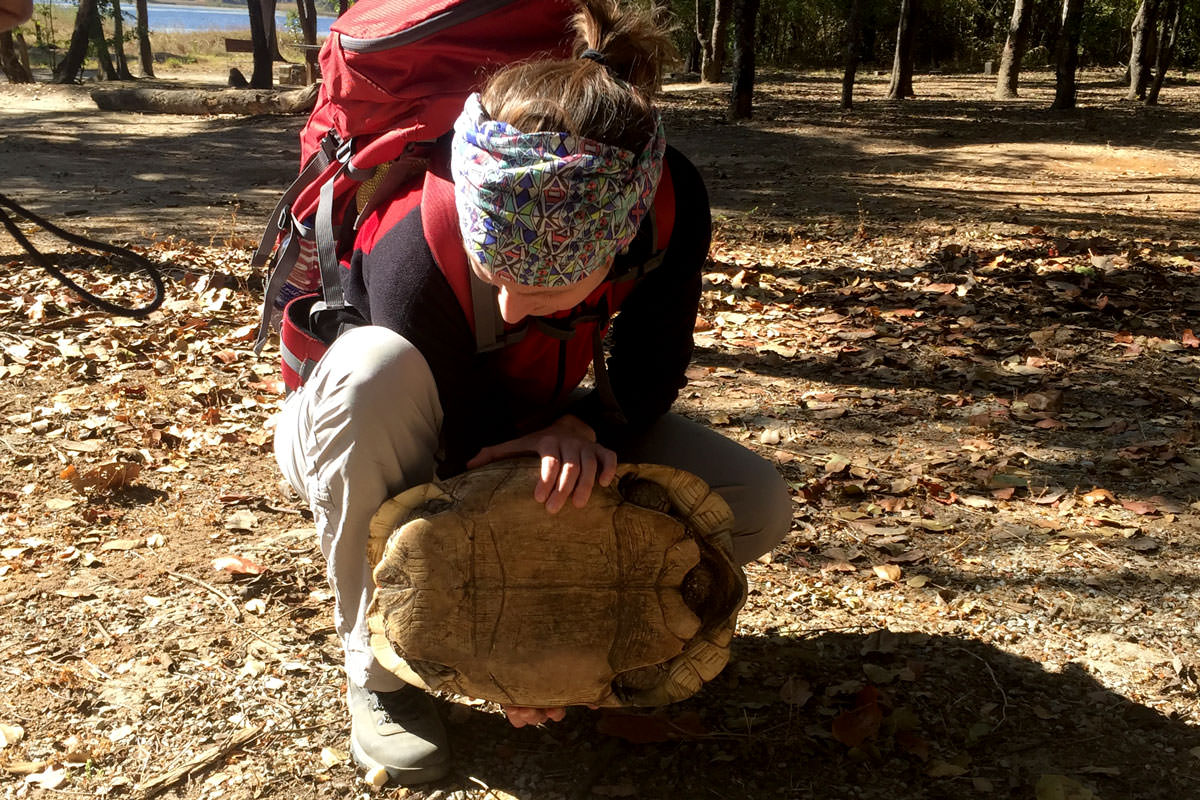
For students, Margarita had been their role model. “All of the graduate students respected her highly and considered her a role model,” Jeff Weinell one of the two students who traveled with Margarita at Zambia said: “Despite having her own responsibilities,” Jeff continued “she always had time to help people around her, and did so with a positive attitude that made her a joy to work with.” “I valued her input,” Elyse Freitas said and “I admired her generosity. She was a fantastic role model, and someone who I was really looking forward to getting to work with and know better in the coming years.” “It always stood to me how approachable and friendly Margarita was. Her way of thinking really forced me to think more as well. I am a better scientist just because of her,” said Ben Karin.
For her colleagues, Margarita had been a valuable asset, a young promising scientist, but most of all a good friend who managed to spread the Mediterranean world view and the importance of following a balanced life with time for work and fun, as opposed to the American model in which competitiveness and drive often overshadow other aspects of people’s lives. “She was a lovely person who improved the lives of all around her. She brought enthusiasm to everything she did. An equation that included Margarita was more than the sum of its parts; she brought out the best in those around her. I will miss having her as a colleague and friend and I think, like all who knew her my life will be darker for her absence but richer for having known her,” Professor Bauer concluded.
In Margarita’s memory, there are two giving opportunities that help continue her legacy. A permanent endowment fund, created by the Society for the Study of Amphibians and Reptiles, which allows post-Ph.D. students from all around the world to attend the Society’s annual meeting where researchers present their work, exchange ideas, and generate new knowledge. This is the world’s largest herpetological conference where Margarita was planning to present her findings upon her return from Zambia.
Margarita’s family has also asked for support to the “Arc of the World” foundation. Donations received by this Greek nonprofit will aid deeply impoverished children that live in “Platonos” Academy, one of the most downgraded regions of Athens. Please include Margarita’s name as a reference in the “add special instructions” section.
More information about these giving opportunities can be found here:
This article is the result of a number of interviews I conducted with people who had closely worked with Margarita. Special thanks to Margarita’s mentor Dr. Salvador Carranza, to her Villanova colleagues Dr. Todd Jackman and Dr. Aaron Bauer, and Villanova students Ben Karin, Elyse Freitas, and Jeff Weinel, for assisting me to present Margarita, both as a scientist and a person. I must also thank Angeliki Metallinou, Margarita’s sister, for all the information she provided and her willingness to help me out with translating this article in Greek. Last but not least, I must thank Costas Xinos for his valuable editorial suggestion. This article would not have been possible without your help.
About the author
Theodore Arapis, Ph.D. is an Assistant Professor of Public Administration at Villanova University, Department of Public Administration.
